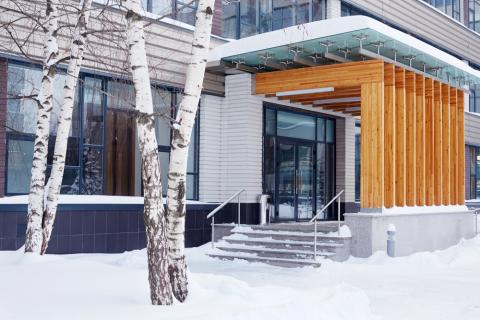Here in the UK, winter can often mean not only freezing temperatures and possible snow, but also rain, rain and more rain! Bad weather and flooding costs businesses of all sizes thousands of pounds each and every year.
So as the winter weather sets in, what can you do to get your business watertight and avoid those costly repairs and lost revenue? It all begins with these three steps…
Information
Whether your business occupies one relatively small office building or several sprawling sites, it will have areas that are vulnerable to bad weather. Begin your winter preparation by making sure you know exactly what and where those vulnerabilities are. Are there areas of roof, or windows and doors that need attention, or exposed outdoor pipes that are not protected from possible impact or damage? Do you have valuable stock or movable equipment in areas which are prone to flooding? How reliable is your heating system and what are the winter settings? Look for all sort of problems large and small, as even seemingly insignificant outstanding repairs - such as dripping sinks or a boiler which has gone too long without a service - could quickly become a much bigger problem when bad weather hits.
Did you know? Reliable heating is a business essential: The UK Health and Safety Executive’s Approved Code of Practice suggests the minimum temperature in a workplace should normally be at least 16 degrees Celsius. If the work involves rigorous physical effort, the temperature should be at least 13 degrees Celsius.
Prevention
Once you’ve got a good insight into how your business might be affected by bad weather, it’s time to start putting measurements in place to protect against it. Pipes that are exposed to the cold should be lagged, and insulation in colder areas of your buildings can also work wonders. Repair roof tiles to prevent ice getting into and enlarging the gaps. Having the health of your boiler thoroughly checked and keeping your heating set to a minimum of 4 degrees, even when buildings are unoccupied, will also help ensure you avoid cracked and frozen pipes - one major cause of flooding. Getting small repairs sorted early is the trick to preventing bigger problems; a little time and money spent now will make a huge difference to the amount you may need to spend on repairs in the longer term. Check for dripping sinks and ball valves, or faulty stop cocks, and make sure your boiler has had a recent service. SES Business Water customers might like to try our £50 Pick ‘n’ Fix service. You can also get everybody behind your bad weather prevention by sharing some of the facts – why not download and display our handy infographic?
Planning
If the worst does happen and your business is hit by extreme weather, having a plan in place could be the difference between staying open and closing down – especially for smaller businesses. Exactly what you need to do will be very specific to the type and size of business you are, but the plans you have should ideally cover everything from who to call for help and repairs and the level of insurance cover you need, through to enabling your workforce to keep on working, whatever the weather.
Make sure you communicate these plans to the whole workforce and involve them in the actions you take to get ready for winter. That way, when your business is affected by cold, snow or flooding, your team will know how to keep your business going.
If you’d like some further help and advice on getting watertight for winter, we’re here when you need us.
Why not get in touch today?

